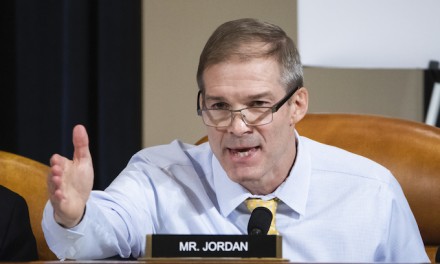The historic 8.7% cost-of-living hike for seniors promised for next year has experts and advocates “thrilled” — but they fear it won’t go far enough as inflation eats away at meager budgets.
The Social Security Administration said Thursday the boost to benefits — $140 more a month on average — is the first of its kind in 40 years. But it’s not keeping pace with the astronomical cost of housing, heating, groceries, gas, and services afflicting the nation teetering on a recession.
“It’s a challenge for seniors in Boston to make ends meet,” said Emily Shea, head of the city’s Age Strong Commission. “We’re thrilled about the 8.7% increase, but people have a right to live in the city and age with dignity.”
She said the estimated cost of affording life in Boston as a renter is $39,000 for a single person over 65. Yet 73% of those residents don’t have that income coming in to cover expenses today.
The cost for a couple 65 and older renting in the city is $51,000, Shea added, and 42% of those couples also can’t make ends meet.
That’s where the safety net comes in, Shea stressed. That includes heating assistance, food stamps, visiting nurses and other in-home benefits seniors need to help them remain independent.
Other Age Strong statistics tell a sobering story of the city’s 113,889 residents over 60 who rely heavily on public transportation (25.7%), walking (11.3%), and food stamps (31%).
Add to that monthly costs for an elder living alone — $275 for food; $312 for transportation; $1,895 for rent; $427 for health care; and $376 for miscellaneous costs.
Shea said the Age Strong Commission zeroes in on how to stretch every dollar with city elders “all the time,” with teams set up to “help close the gap.”
A Social Security fact sheet states the estimated average monthly benefit for retirees will be $1,827 starting in January. But the government also reported the Consumer Price Index has jumped 8.2% over the past 12 months.
Where is will stop is anyone’s guess. The COLA hike, however, is a lifesaver.
“It shouldn’t really be reported as an increase, but a catchup on inflation,” said Syracuse University Professor Eric Kingson, a national expert and author on Social Security. “If you’re living on a fixed income, this helps you get back in a regular position financially.”
He added Social Security is “one institution almost everyone likes.” It’s “joining us,” he added alluding to the splintered political climate, and it stands for the “values” of proving for a generation that has worked through tough times.
The cost-of-living increase also give seniors some purchasing power back, and that will also fuel economic growth.
Richard Parker, a recently retired Harvard University economics professor, told the Herald that as we come out of the COVID pandemic, economies around the globe are being “hit in different ways.”
The Russian invasion of Ukraine and what that will mean to European gas supplies this winter, OPEC “cooperating with Russia,” President Biden holding a “paper-thin” margin of support and the midterms just weeks away are making for a volatile economic environment.
“Financial markets are worried … companies are adjusting pricing to make up for lost profits,” he said, “and consumers are not sure” about where this all goes.
“We don’t know how to be rational,” he said. “I can’t predict what we’ll go through.”
He did stress retirees with pensions or 401k accounts, property and other assets can ride this storm out better than others just on Social Security.
“But some people are going to be really hurt,” he added. “We need to pay attention to them. We’re in a choppy, choppy period.”
It’s time to “stretch dollars,” he stressed, and look out for others.
Seniors in Boston looking for help can contact the Age Strong Commission at 617-635-4366.
©2022 MediaNews Group, Inc. Visit at bostonherald.com. Distributed by Tribune Content Agency, LLC.
—-
This content is published through a licensing agreement with Acquire Media using its NewsEdge technology.



















What’s the bet, the ‘pay rise’ congress will eventually give itself, won’t have ANYWHERE near 100% of it, eaten way with all these price hikes..
This is where the republicans needs to set up. First SS is not an Entitlement program. Democrats give their people food stamps and welfare and public housing and section 8 and now 500.00 Guaranteed income. All these illegals democrats are allowing in the country also get the Benefits, same benefits Biden gives to his people. ***While American seniors get 140.00 extra . Do you see the difference ?? Republican s needs to set up for their people!!!!!!